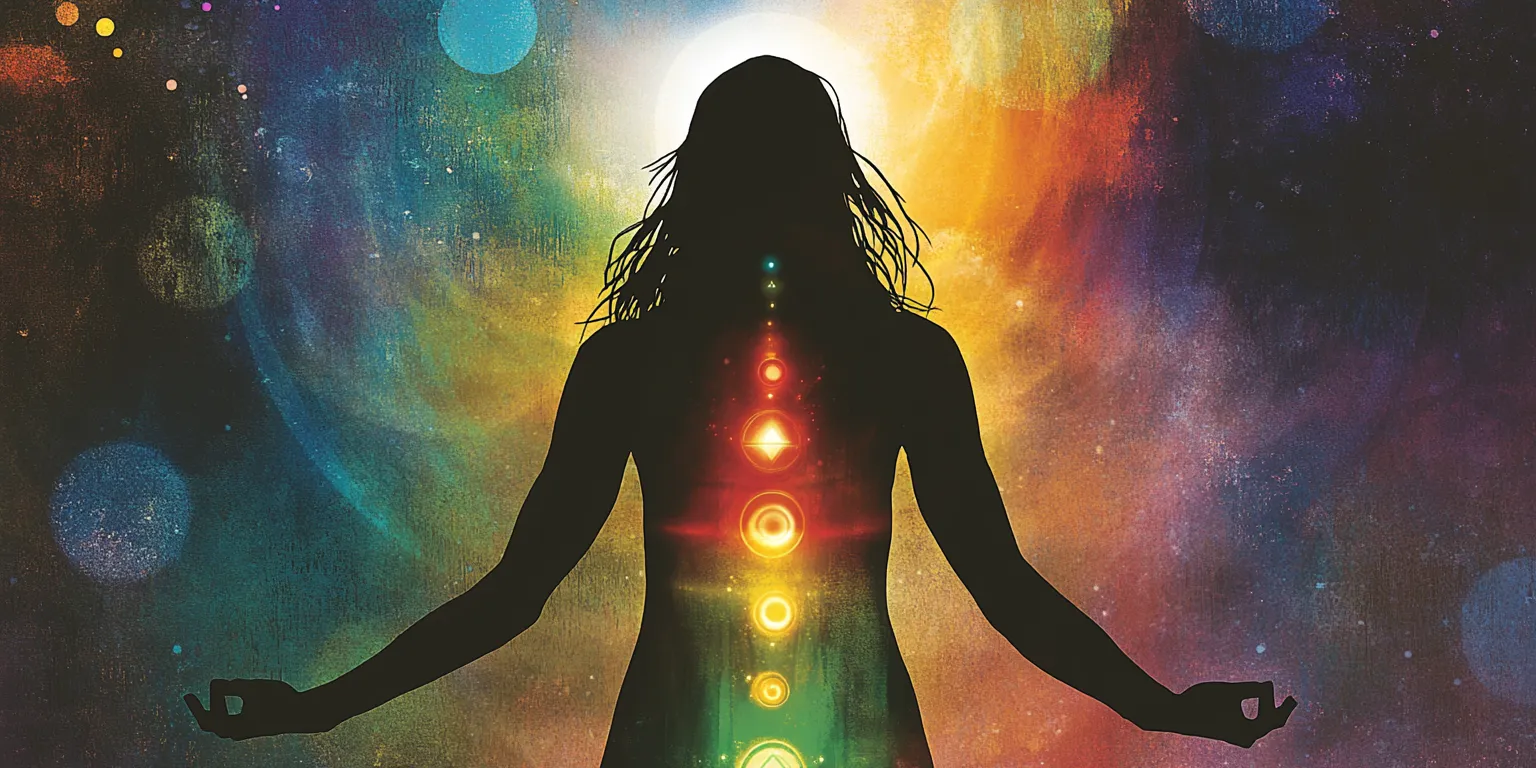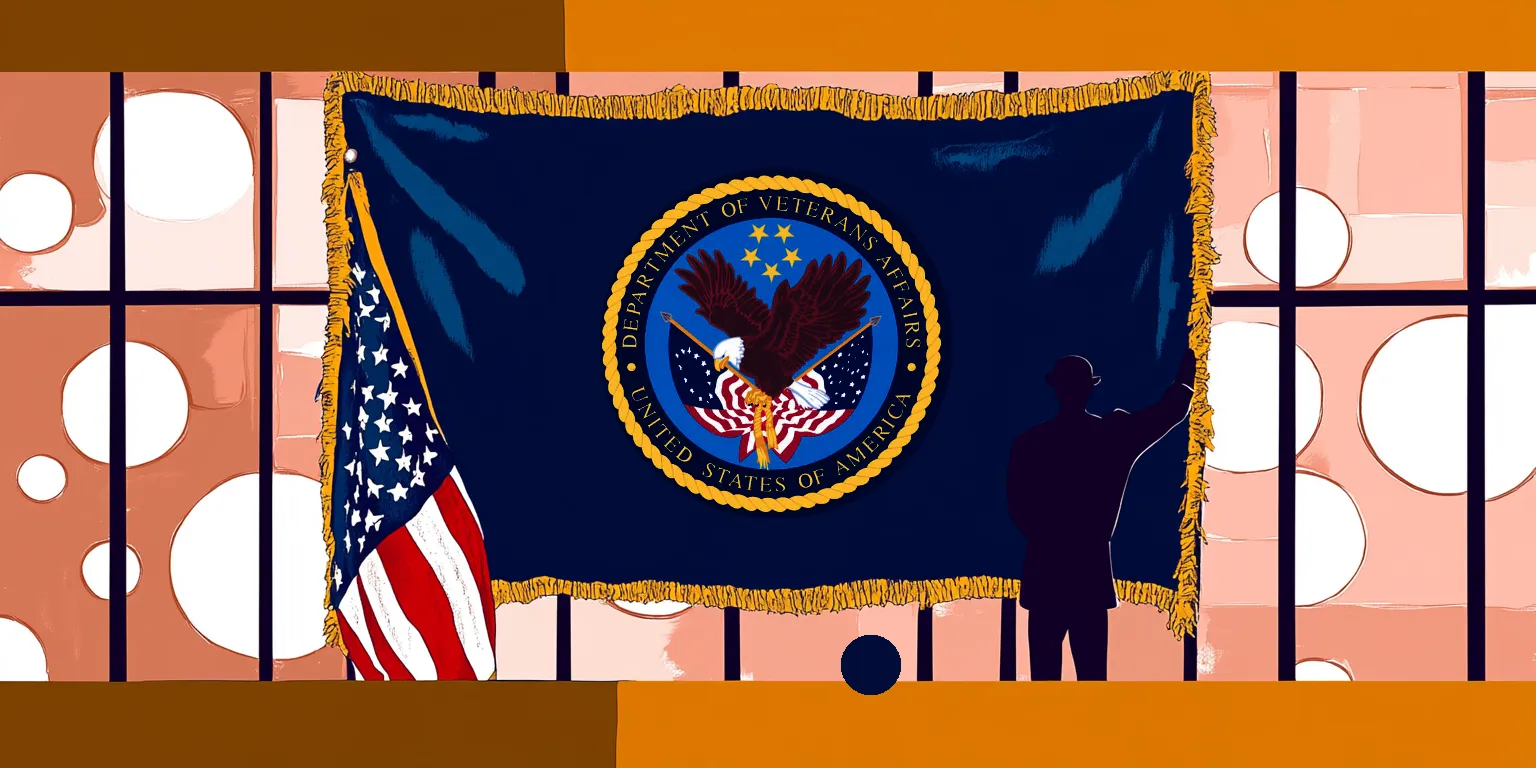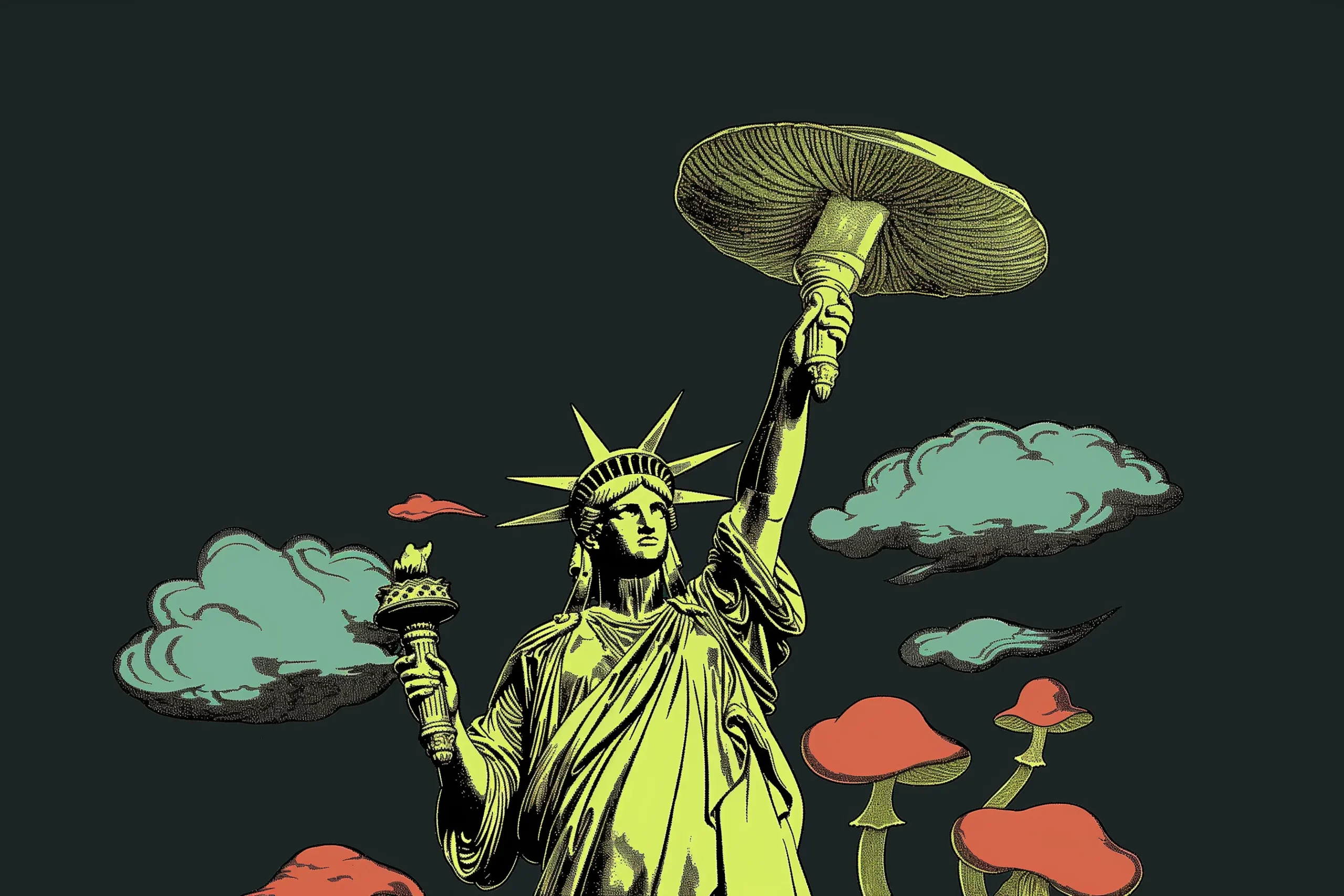In this week’s psychedelic news roundup, the Multidisciplinary Association for Psychedelic Studies (MAPS) published the results from their confirmatory Phase III clinical trial examining MDMA as a treatment for PTSD. Other news includes a new psilocybin study examining magic mushrooms’ potential use as an anti-inflammatory, the first ever psilocybin for fibromyalgia study, and an alarming uptick in fentanyl contamination and opioid overdose deaths.
We’ve collected five of the most powerful and influential lectures from the 1950s to today to give you a glimpse into the many musings of the modern era’s greatest psychedelic experts. From the philosophical explorations of Alan Watts to the scientific rigor of Dr. Robin Carhart-Harris, we present five of the most influential psychedelic lectures you need to hear.
MAPS Publishes Stunning Phase III Trial of MDMA-Assisted Therapy for PTSD Results

Announced via MAPS PBC, the results from the second Phase III trial, MAPP2, of MDMA-assisted therapy for post-traumatic stress disorder (PTSD) have been published in Nature Medicine. The study, sponsored by the Multidisciplinary Association for Psychedelic Studies (MAPS) and conducted by its subsidiary, MAPS Public Benefit Corporation (MAPS PBC), confirmed the findings of the first Phase III study. The trial evaluated the efficacy and safety of MDMA-assisted therapy versus a placebo in participants with moderate to severe PTSD. The primary outcome, measured by the Clinician-Administered PTSD Scale for DSM-5 (CAPS-5), showed that MDMA therapy significantly reduced PTSD symptoms compared to the placebo.
The study involved a diverse group of participants, with 26.9% having moderate PTSD and 73.1% with severe PTSD. Ethnoracial diversity was also noted, with 26.9% identifying as Hispanic/Latino and 33.7% identifying as other than White. Secondary outcomes revealed that MDMA therapy also significantly reduced clinician-rated functional impairment, as measured by the Sheehan Disability Scale (SDS). This improvement was observed across various domains, including family life, social life, and work life.
Keep Up with Uncensored Psychedelic Trends
Join our newsletter at Psychedelics Uncensored.
We respect and protect your privacy. By subscribing your info will be subject to our privacy policy . Unsubscribe easily at any time
Exploratory outcomes provided further insights. In the MDMA therapy group, 86.5% of participants showed clinically meaningful improvement, defined as a reduction of at least 10 points in the CAPS-5 score, compared to 69.0% in the placebo group. By the end of the study, 71.2% of the MDMA group no longer met the criteria for PTSD, compared to 47.6% in the placebo group. Additionally, 46.2% of the MDMA group met the remission criteria, versus 21.4% in the placebo group. The study also found that responses to treatment were consistent regardless of disease severity or other factors, with the exception of a lifetime history of SSRI use, which improved the efficacy of MDMA therapy.(1)
Psilocybin’s Influence on Immune Response and Mood
Published in the journal, Brain, Behavior, and Immunity, a recent study delved into the effects of psilocybin, a compound found in certain mushrooms, on the immune system and mood. Researchers worked with 60 participants, dividing them into two groups. One group received a placebo, while the other was given a moderate dose of psilocybin. The goal was to understand how this compound might influence our body’s immune response and, subsequently, our mood and stress levels.
The study yielded several noteworthy findings. Immediately after taking psilocybin, participants showed a decrease in a specific inflammation marker called TNF-α. Interestingly, while this particular marker returned to its usual level after a week, other inflammation markers, IL-6 and CRP, remained low. This suggests that psilocybin has a unique and lasting effect on certain parts of our immune system. Additionally, using advanced brain imaging, researchers found that the initial drop in TNF-α was linked to changes in brain activity, specifically in the hippocampus.
From a psychological perspective, the study revealed a connection between the immune system and mood. Participants who had a more significant reduction in the IL-6 and CRP markers reported feeling consistently better and more socially engaged a week after taking psilocybin. However, when it came to handling stress, psilocybin didn’t show a noticeable difference compared to the placebo. In essence, this research suggests that psilocybin might have a dual effect: it can influence our immune system and, in turn, potentially boost mood and social behavior. This discovery could be pivotal for future treatments of mood disorders and understanding the intricate connection between our brain, mood, and immune system.(2)
University of Michigan Launches Psilocybin Therapy for Fibromyalgia Study

The University of Michigan recently announced their inaugural study on Psilocybin therapy for Fibromyalgia. Fibromyalgia (FM) is a chronic condition characterized by widespread musculoskeletal pain, often accompanied by other symptoms like sleep disturbances, fatigue, cognitive issues, and mood-related challenges such as anxiety and depression. Recent research points to altered central pain pathways in FM patients. While the current treatment approach is multidimensional, encompassing behavioral therapy, exercise, and medication, the benefits from these treatments are often limited and come with side effects. This has led many FM patients to explore alternative treatments. The study, sponsored by Kevin Boehnke from the University of Michigan, aims to investigate the potential benefits of psilocybin therapy (a combination of psilocybin and psychotherapy) for treating chronic pain symptoms associated with FM.
Psilocybin therapy has shown promise in treating various conditions, including cancer-related psychiatric distress, depression and anxiety, treatment-resistant depression, and even addictions like nicotine or alcohol. Recognizing its potential, the United States Food and Drug Administration (FDA) has granted it a Breakthrough Therapy designation for certain depressive disorders. Generally, when administered under controlled conditions, psilocybin therapy is safe and well-tolerated. While there haven’t been any clinical studies specifically targeting FM patients with psychedelics, recent reviews suggest potential mechanisms through which psychedelics might help alleviate chronic pain symptoms.
Given the urgent need for effective FM treatments, the known safety profile of psilocybin therapy, and the potential for benefit, this study will evaluate the clinical advantages of oral psilocybin combined with psychotherapy to address chronic pain symptoms in FM patients. The backdrop of this research is to explore a potentially more effective and well-tolerated treatment alternative for FM patients, offering them relief from their symptoms and improving their quality of life.(3)
The Rising Threat of Fentanyl Mixed with Stimulants

In an article originally published by NPR, the U.S. is witnessing a surge in fatal overdoses caused by a combination of stimulants, such as cocaine and meth, with the potent synthetic opioid, fentanyl. Since 2010, overdoses involving this mix have skyrocketed, with a 50-fold increase. By 2021, they accounted for 32% of U.S. overdoses, resulting in nearly 35,000 deaths. This alarming trend is being termed as the “fourth wave” in the opioid crisis by researchers. The previous waves were driven by prescription opioids in the early 2000s, heroin around 2010, and fentanyl in 2013.
Keep Up with Psychedelic Trends
Get uncensored psychedelic news, events, and updates. Join Psychedelics Uncensored!
We respect and protect your privacy. By subscribing your info will be subject to our privacy policy . Unsubscribe easily at any time
The combination of opioids and stimulants is not new. Historically, some individuals have used stimulants to counteract the drowsiness caused by opioids, a practice known as “speedballing.” However, this combination is particularly dangerous. Stimulants constrict blood vessels and increase the body’s oxygen demand, while opioids reduce respiration, decreasing oxygen supply. This combination can strain the body, increasing the risk of overdose. Another concern is the unintentional consumption of fentanyl when it contaminates or is mixed with stimulants, catching users off guard with its potency.
While the data highlights the lethal combination of these drugs, interpreting the exact cause of death remains challenging. Autopsy toxicology reports can identify substances present in a person’s system but don’t necessarily pinpoint the exact cause of death. However, these findings are crucial as they guide treatment strategies and resource allocation. The current wave of overdoses is disproportionately affecting the Black community, and geographically, the northeast sees more fentanyl-cocaine combinations, while the south and west witness fentanyl-meth mixes. Experts emphasize the importance of making overdose antidotes like Narcan widely available to mitigate this crisis.(4)
This week’s news highlights the significant steps being made towards the legalization of and FDA approval of psychedelic medicine, while also highlighting the risk posed by illicit fentanyl and other synthetic opioids contaminating recreational drugs. Psychedelic medicine continues to move forward, and may hold a key to revolutionizing the way Americans treat mental health disorders.
Learn About The Science, Uses, Legality and Tips for Using Psychedelics Safely with Our Psychedelic Guides:
LSD, MDMA, Ketamine, Psilocybin, 5-MeO-DMT, Ayahuasca and DMT
Sources

1. Aldworth, B. (2023, September 13). MAPS PBC Publishes Results of Successful Confirmatory Phase 3 Trial of MDMA-Assisted Therapy for PTSD. Multidisciplinary Association for Psychedelic Studies – MAPS. https://maps.org/2023/09/13/maps-pbc-publishes-results-of-successful-confirmatory-phase-3-trial-of-mdma-assisted-therapy-for-ptsd/
2. Mason, N. L., Szabo, A., Kuypers, K. P. C., Mallaroni, P. A., de la Torre Fornell, R., Reckweg, J. T., Tse, D. H. Y., Hutten, N. R. P. W., Feilding, A., & Ramaekers, J. G. (2023). Psilocybin induces acute and persisting alterations in immune status in healthy volunteers: An experimental, placebo-controlled study. Brain, Behavior, and Immunity, 114, 299–310. https://doi.org/10.1016/j.bbi.2023.09.004
3. Researchers flash forward with psychedelics at M-PsyC. (2023, August 26). Michigan Today. https://michigantoday.umich.edu/2023/08/26/researchers-flash-forward-with-psychedelics-at-m-psyc/
4. Maucione, S. (2023, September 14). Fentanyl mixed with cocaine or meth is driving the “4th wave” of the overdose crisis. NPR. https://www.npr.org/sections/health-shots/2023/09/14/1199396794/fentanyl-mixed-with-cocaine-or-meth-is-driving-the-4th-wave-of-the-overdose-cris
This material is not intended as a replacement or substitute for any legal or medical advice. Always consult a medical professional about your health needs. Psychedelics are widely illegal in the United States, and readers should always be informed about local, state, and federal regulations regarding psychedelics or other drugs.

 David Connell
David Connell
 Ross Dillon
Ross Dillon 
